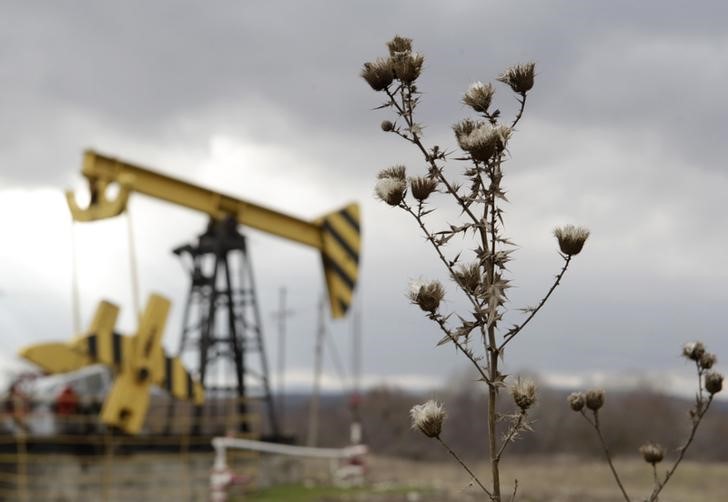By Simon Falush
LONDON (Reuters) - Oil prices fell on Wednesday as a rise in U.S. inventories added to a deep global glut, while investors discounted any possibility of the Organization of the Petroleum Exporting Countries (OPEC) would do anything to cut production at this week's meeting.
Brent crude was down 52 cents at $43.92 a barrel by 0926 GMT, falling for a fifth consecutive session. It dropped as low as $43.90, its weakest level since Nov. 23, and was on track for its lowest close in two weeks.
U.S. crude was trading 41 cents own at $41.44 a barrel.
Oil production exceeds demand substantially and a growing global glut has sent prices tumbling by more than 60 percent since June 2014.
OPEC, however, is not expected to budge from its stance of keeping output high to defend market share against producers such as Russia and North America.
"The market ascribes an extremely low probability to a change in OPEC policy," said Bjarne Schieldrop, chief commodity analyst at SEB in Oslo.
"If investors thought there was even the slightest risk, we would have seen prices rise in the run up to the meeting."
Beyond OPEC's meeting, oil traders remained focused on growing stockpiles.
Data from the American Petroleum Institute (API) showed a 1.6 million-barrel rise in U.S. crude inventories last week to 489.9 million barrels.
The U.S. government's Energy Information Administration's inventory report will be published at 1530 GMT.
Low oil prices in combination with high debt levels are putting heavy pressure on corporate energy earnings.
"The global oil and gas sector is heavily indebted, with upstream companies holding about $1.1 trillion in dollar-denominated corporate bonds and loans," BMI Research said.

"While the current debt load does not pose a systemic threat to the industry, a pullback in low-cost financing will be a necessary precursor to the broader rebalancing of the physical oil market."